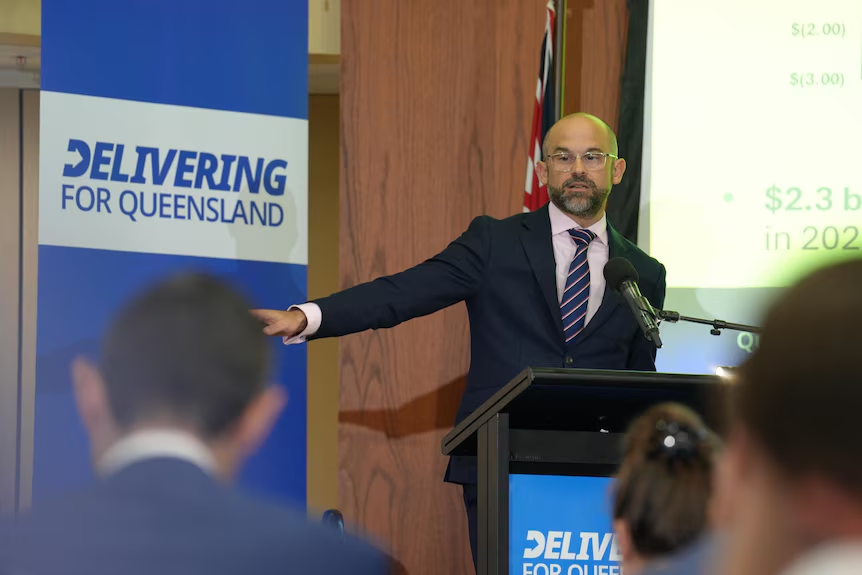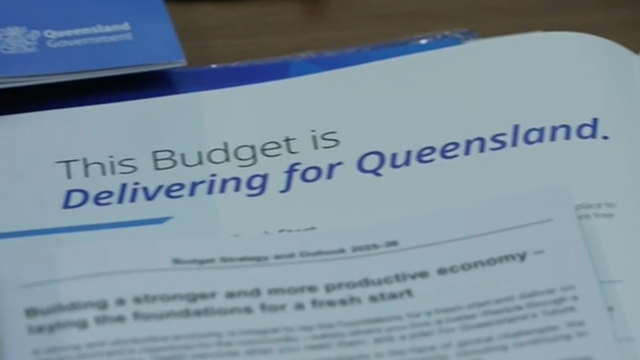Queensland’s Treasurer, David Janetzki, has unveiled the state’s new budget, bringing a mix of hope and uncertainty to the table.
With a focus on helping young Queenslanders buy their first homes and providing relief from the rising cost of living, the budget aims to strike a balance between short-term needs and long-term goals.
A Boost to Home Ownership
One of the key highlights of the budget is the “Boost to Buy” shared equity scheme, which will allow young Queenslanders to purchase a property worth up to $1 million with a deposit as low as 2%.
This $165 million initiative is expected to help up to 1,000 people take their first step on the property ladder.

Janetzki hopes that this scheme will be just the beginning, and he’s committed to pouring more money into the program if it’s fully taken up.
Addressing the Housing Crisis
The budget also acknowledges the state’s housing crisis, with 52,000 Queenslanders currently on the social housing waitlist.
While the allocation of extra funds to build more social housing is a step in the right direction, it’s clear that more needs to be done to address the issue.
Janetzki believes that community housing purchases will play a crucial role in bridging the gap, but he’s quick to point out that he’s not the housing minister.
Cost-of-Living Relief
The budget provides some modest and targeted relief from the rising cost of living, with a focus on helping families with school-aged children.
The revival of CPI indexation on electricity rebates will see vulnerable households receive a small increase in their rebates, from $372 to $386.
However, there’s no across-the-board electricity rebate like last year, and the budget’s overall impact on cost of living will likely be limited.
A Challenging Financial Landscape
Despite the positive initiatives, the budget is underpinned by uncertainty, with revenue taking a dive and credit rating agency S&P Global warning of a “sharp deterioration” in the state’s finances.
The risk to Queensland’s AA+ credit rating remains elevated, and the budget deficit is expected to remain for at least another four years. Total debt is predicted to hit $205.7 billion by 2028-29, and the situation in the Middle East could lead to further blowouts.
A New Approach to Budgeting
The Queensland Government is taking a new approach to budgeting, with a focus on saving money by cutting back on external consultants. The new Queensland Government Consulting Services agency, set to start work on July 1, aims to reduce the growth in external consultant hiring by $6.8 billion.
Janetzki is confident that this agency will hit its mark, but it remains to be seen how effective it will be in practice.
A Commitment to Transparency
The budget has been criticized for discrepancies between Labor’s last budget and the debt and deficit figures now being quoted. Janetzki attributes this to the previous government’s failure to budget for significant commitments, citing the $638 million for the new Springfield Mater Hospital as an example.
The premier has acknowledged the need for a parliamentary budget office and committed to having one in place by next year, which should provide greater transparency and accountability in the budget process.
Overall, Queensland’s new budget brings a mix of hope and uncertainty, with a focus on helping young Queenslanders buy their first homes and providing relief from the rising cost of living.
While the financial landscape is challenging, the government is taking a new approach to budgeting and committing to transparency and accountability. only time will tell if these initiatives will pay off and provide a brighter future for Queenslanders.

